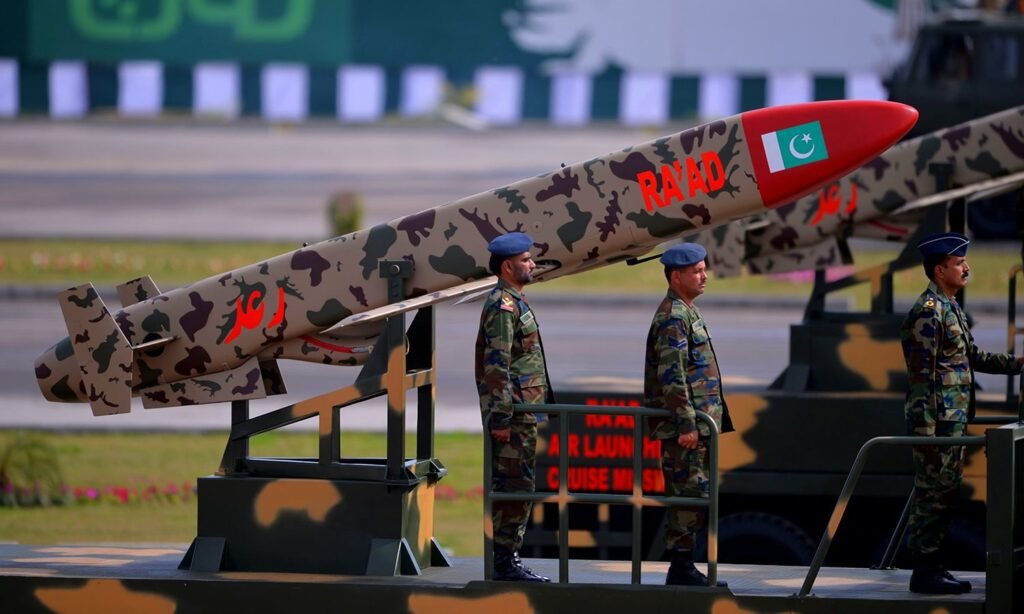Very proudly, Pakistan will celebrate its 25th anniversary of Youm-e-Takbeer (The Day of Greatness) to commemorate its nuclear tests on 28 May 1998 with national zeal and fervor. On this auspicious occasion, it is equally significant to recall the journey of nuclear energy in Pakistan. This article explores the nuclear expertise of Pakistan at large and its collaboration with the International Atomic Energy Agency (IAEA) which is an intergovernmental organization that seeks to promote the peaceful use of nuclear energy.
Pakistan is one of the founding members of IAEA since its creation in 1957 and engaged with it in a very productive and mutually beneficial relationship of peaceful applications of nuclear energy in various sectors of human development.
Pakistan started its nuclear energy program by following the imprints of U.S. President Eisenhower’s ‘Atoms for Peace program’ in 1956 which was aimed to spread nuclear energy technology across the globe. By following this initiative, the first historic collaboration was started with the implementation of IAEA Safeguards in Pakistan in March 1962 when a safeguards agreement was signed for the supply of Pakistan Research Reactor-1 (PARR-1). IAEA Safeguards are technical means of verifying compliance with legal obligations relevant to the peaceful uses of nuclear energy. Over the decades, Pakistan has had the rare distinction of keeping all its civilian nuclear facilities under IAEA Safeguards including the Chashma and Karachi nuclear power plants. Pakistan ensures its full cooperation with the IAEA to meet the latest safeguards protocols for its nuclear facilities at an optimal level.
Pakistan and IAEA signed ‘Nuclear Security Cooperation Program’ to enhance effectiveness of the Country’s Nuclear Security Regime, through IAEA support, in 2005. The aim was to have a capacity building of national strategic organizations for nuclear security responsibilities which are in accordance with the IAEA recommendations. Furthermore, Pakistan plays a major role in IAEA´s Technical Cooperation and Assistance Programme in providing training to scientists and engineers from other developing countries.
Due to this responsible behavior of Pakistan, DG IAEA Mr. Rafael Grossi stated that Pakistan has “world-class and impeccable” nuclear safety during his maiden visit to the country on 15-16 Feb 2023. This acknowledgment brings multifaceted meanings in terms of national and international levels; it’s an applause to Pakistani nuclear engineers, scientists, and strategic organizations for their diligent efforts to achieve a flawless level of nuclear security.
The collaboration with IAEA doesn’t end with nuclear safeguards only rather it’s more to enjoy the fruits of nuclear science and technology in the forms of power generation, environmental degradation, medicine, and agriculture. At the moment, Pakistan is experiencing host challenges including economic crunch, energy starvation, and climate change. ‘Nuclear Energy’ is one answer to these woes by offering a cost-effective and environment-friendly source of energy. Pakistan was badly hit by floods in 2022 due to climate change. IAEA extends its full support to climate-vulnerable countries to counter the disastrous effects of climate change with nuclear science and technology. Pakistan currently operates six nuclear power reactors at two sites that generate about 10 percent of the country’s total and almost a quarter of its low-carbon electricity. This will certainly be helpful in meeting the speedy rise of energy demand and supply.
Likewise, there are plentiful opportunities for the peaceful use of nuclear science and technology in Pakistan by utilizing the IAEA initiatives in the field of nuclear medicine. Being an active member of the IAEA, Pakistan is pursuing its nuclear medical facilities which offer cure for cancer patients. Recently, Nuclear Medicine Oncology and Radiotherapy Institute in Islamabad introduced a new cancer treatment facility Cyberknife. This initiative seeks to increase cancer care access in low- and middle-income countries by helping to introduce and improve radiation medicine capacities and build the cancer care workforce. It is described as a milestone achieved by Pakistan in the field of nuclear medicine.
There are nuclear research and development centers that are working in Pakistan to have the potential benefits of nuclear energy in the field of agriculture also. Being an agricultural country, Pakistan closely works with IAEA’s ZODIAC initiative for combating zoonotic diseases and future pandemics. IAEA aspires that Pakistan’s expertise in nuclear medicine and agriculture will be beneficial not only for the country but also for the neighboring countries.
The people of Pakistan must feel proud that the country has genuinely earned the legacy of nuclear energy by cordially collaborating with IAEA’s measures from the very start of its nuclear program. Pakistan carries an impeccable record of nuclear safety and security which is a result of joint efforts of Pakistan’s strategic organizations and IAEA. Pakistan has also been elected as a member of the Board of Governors of the agency more than twenty times which is also a recognition of Pakistan’s long-standing commitment to the aims and objectives of the IAEA in promoting peaceful uses of nuclear energy as well as its positive contribution to the formulation of IAEA’s policies and programs. keeping in view the flawless nuclear track record and responsible behavior, Pakistan should enjoy the fruits of nuclear energy which is a safe, clean, and cheap source of energy as it’s the need of the time. As Bill Gates puts this, “Nuclear Energy, in terms of an overall safety record, is better than other energy.”
